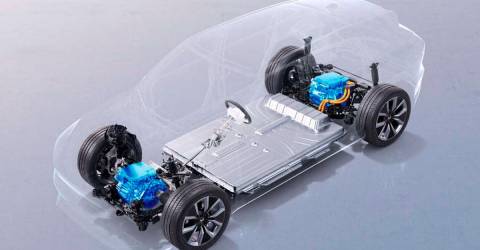Our Terms & Conditions | Our Privacy Policy
Electric vehicle sales surge despite global trade tensions
ELECTRIC VEHICLE (EV) sales are on track to continue their upward trajectory this year, despite geopolitical uncertainties and the imposition of fresh tariffs by the United States, the International Energy Agency (IEA) revealed in its latest annual report.
According to the agency, electric cars are expected to make up one in every four vehicles sold globally by the end of 2025, a reflection of shifting consumer preferences and the growing appeal of lower long-term operating costs. The IEA highlighted that affordability and advancements in EV technology are accelerating global adoption rates.
Fatih Birol, Director-General of the IEA, noted that electric vehicles are firmly positioned on a global growth path. He forecasted that by 2030, over 40 per cent of global car sales will be electric, signalling a significant transformation in the automotive landscape.
The surge in demand is already evident. In 2024 alone, global EV sales–including plug-in hybrid models–reached over 17 million units, representing an increase of more than 3.5 million from the previous year. The first quarter of 2025 saw sales jump by 35 per cent year-on-year, with full-year figures expected to surpass 20 million units.
China remains at the forefront of the EV revolution, accounting for nearly two-thirds of global sales and over 70 per cent of production. The report noted that electric cars in China are now less expensive than internal combustion engine vehicles, even without government subsidies. In contrast, buyers in countries like Germany and the United States still face a 20 to 30 per cent price premium when choosing an EV over a conventional car.
Nearly half of all vehicles sold in China this year are expected to be electric, marking a nearly 40 per cent increase from 2024. Meanwhile, emerging markets across Asia, Latin America and Africa are also experiencing a boom in EV adoption. Sales in these regions grew by over 60% last year, driven largely by supportive government policies and the availability of affordable EVs from Chinese manufacturers.
Chinese automakers are also responding to international trade barriers by expanding local production facilities in developing countries, reducing dependence on exports and circumventing costly import duties.
The IEA cautioned that heightened tariffs, especially in the context of a slowing global economy, are negatively impacting not just EV sales but also those of traditional vehicles. Nonetheless, the Chinese EV sector is projected to remain resilient due to strong domestic support and highly competitive pricing.
The report concluded by noting that EVs now represent almost 20 per cent of all global vehicle trade, underscoring their central role in the future of mobility.
Images are for reference only.Images and contents gathered automatic from google or 3rd party sources.All rights on the images and contents are with their legal original owners.



Comments are closed.